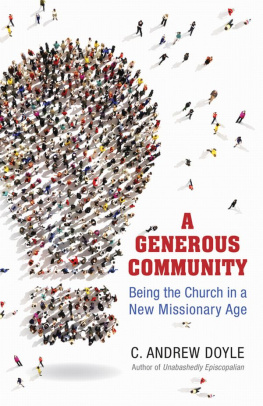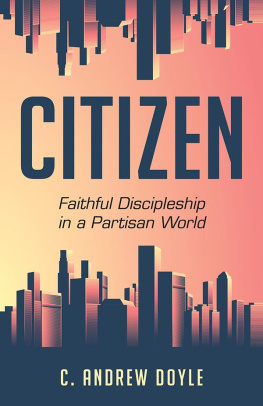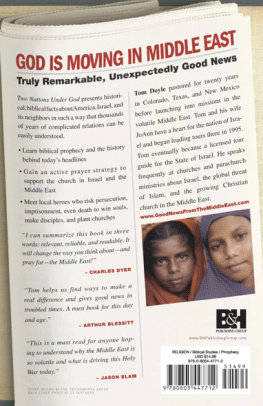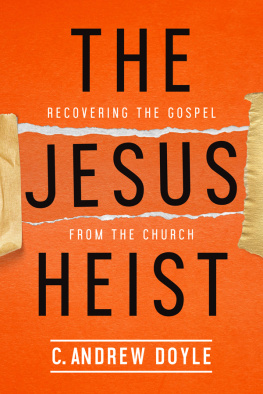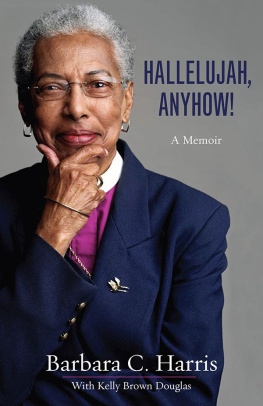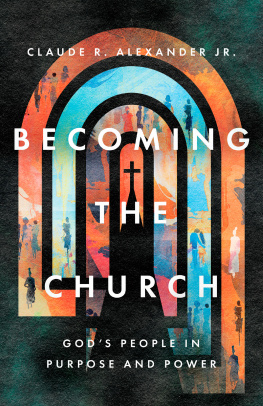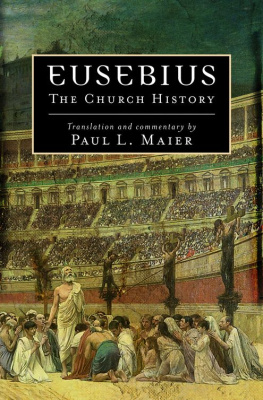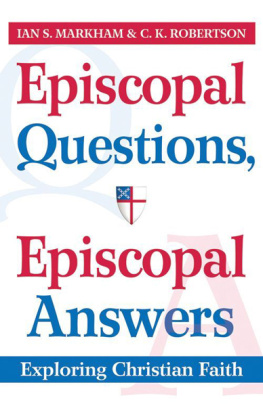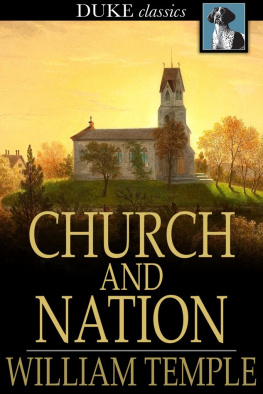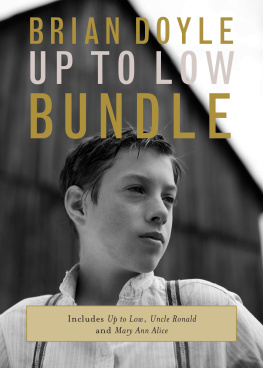A Generous Community
A
GENEROUS
COMMUNITY
Being the Church in a
New Missionary Age
C. ANDREW DOYLE
Author of Unabashedly Episcopalian

Copyright 2015 by C. Andrew Doyle
All rights reserved. No part of this book may be reproduced, stored in a retrieval system, or transmitted in any form or by any means, electronic or mechanical, including photocopying, recording, or otherwise, without the written permission of the publisher.
Unless otherwise noted, the Scripture quotations contained herein are from the New Revised Standard Version Bible, copyright 1989 by the Division of Christian Education of the National Council of Churches of Christ in the U.S.A. Used by permission. All rights reserved.
Morehouse Publishing, 19 East 34th Street, New York, NY 10016
Morehouse Publishing is an imprint of Church Publishing Incorporated.
www.churchpublishing.org
Cover design by Laurie Klein Westhafer
Typeset by Denise Hoff
Library of Congress Cataloging-in-Publication Data
Doyle, C. Andrew.
A generous community: being the church in a new missionary age / C. Andrew Doyle.
pages cm
Includes bibliographical references.
ISBN 978-0-8192-3230-4 (pbk.)ISBN 978-0-8192-3231-1 (ebook) 1. Church renewal. 2. Church renewalEpiscopal Church. I. Title.
BV600.3.D69 2015
283'.73dc23
In the past, uniformity sold products. It still does in many sectors. For example, it still matters that every McDonalds hamburger is exactly the same.
Uniformity sold religions too. The fact that every Catholic mass was, for many centuries, in the same historic (and dead) language that few Catholics understood was a plus. It was only those rebel Protestants who stooped to read Scripture, pray, and worship in tawdry living languages like English! Of course, eventually Catholics joined the vernacular club too.
But uniformity has its drawbacks. If you specialized in vinyl records in the Sixties or 8-tracks in the Seventies or cassettes in the Eighties or CDs in the Nineties, you made a lot of money. The same was true for products in the film and camera industry. Who could have guessed that a day would come when music would be played and photographs would be taken on phones?
Religions face a similar challenge. Just as companies had to answer the question of whether they were in the record, 8-track, cassette, or CD businessor whether they were actually in the music dissemination businessreligions have to grapple with what their true mission is: Gathering people to use a certain edition of a prayer book? Preparing clergy to fill vacancies in existing buildings? Convincing people to say certain creeds or transfer their money to the accounts of certain institutions?
Many religious leaders are loyal to the good old days when every church was more or less the same, when pastors or priests could be unplugged and transferred to another congregation like a module in a machine, when words like Presbyterian or Episcopal or Roman Catholic meant one thing and one thing only, when the churchs liturgy was as predictable as a McDonalds cheeseburger.
God bless them.
Other religious leaders are saying something quite different. Others have learned to say: Were not in the LP or CD businesswere in the music dissemination business, or Were not in the camera and film businesswere in the image-sharing business, or Were not in the stamp, envelope, and mailbox businesswere in the communication business, or Were not in the hamburger businesswere in the nourishment and health business.
So these religious leaders are saying: Beneath our traditions and conventional structures, there is something deeper running like a current, pulsing like a heartbeat a mission, a calling, an adventure, a challenge, an opportunity. And thats what were about. To pursue that deeper mission is what matters most to us, even if that means recycling some of our traditions and revolutionizing some of our conventional structures.
Bishop Andy Doyle is helping lead the way in refocusing on the deep current and spiritual heartbeat of Christianity. He is using his position in the Episcopal Church not to clamp down and impose uniformity, but to open up new possibilities and stimulate creativity. He knows that doing so will upset some peopleespecially those who are intimidated by changes in so many areas of society and who want their church to be the one place in the world where everything stays exactly the same! (They dont realize that what theyre asking for is not a church but a museum. Or maybe a cemetery?)
He has written this book to help congregations face the challenge of change not simply as a necessary burden (like quitting cigarettes, maybe, or losing those fifteen pounds that somehow snuck onto your frame in recent years) but as a creative opportunity, vocation, and adventure.
The content of this book is transformational enough, but then add the resources for group interaction and you have a combination thatwith your energetic engagementcan mean a brighter future for your church, your life, and the lives of your grandchildrens grandchildren.
So heres my hope: that you will read this book, and about halfway through, decide to form a reading group. Then youll invite four to twenty of the most interesting, creative, and energetic people in your congregation to gather every week to discuss a chaptermaybe over a meal. Amazing things could happen!
Or maybe youre one of those people who is part of such a reading group. Bring all of your creativity and energy to a conversation about the futureof your church and of our world. Engage the questions, do the exercises. Amazing things could happen!
I expect that within a few paragraphs or pages, your imagination will start generating some truly exciting possibilities.
Brian D. McLaren
A friend reminds me that publishing is like performingits never perfect. I am grateful for that reminder. Church: A Generous Community Amplified for the Future was fun to write. It is long and an in-depth look at our missional history as a church. Part of its imperfection lies in its inaccessibility to the person in the pews. This is the reason for A Generous Community: Being the Church in the New Missionary Age. This book is not perfect, but I had fun writing it and am glad to have had many individuals walk along the writing path with me as friends and companions. It is a distilled and tight text which offers a more accessible vision to the church. My prereaders have been honest when in my exuberance I was too strong. They let me know when my hope was too subtle. With friends and colleagues such as these, we will most assuredly steer our Church into the future faithfully.
The Rt. Rev. Neil Alexander reminded me of the movie The Color of Money and pool hustler Fast Eddy Felson (played by Paul Newman) who says, Pool excellence is not about excellent pool. Its about becoming someone. This is true in book writing too. This book is about me becoming a better bishop from having thought and dreamed about the future. We will become a better diocese and a better Church from having had this conversation. We are always on the road to becoming the person and Church that God dreams.
I am grateful to conversation partners who, over the last two years, have helped me think about the future of the Church and how to take steps forward and march into it: Margaret Wheatley, Bob Johansen, and Rachel Hatch, among many others. Their own imagination and foresight have given me space in which to think and imagine. The result is two books with much in common but intended for different conversation partners. It is my hope that this book,

